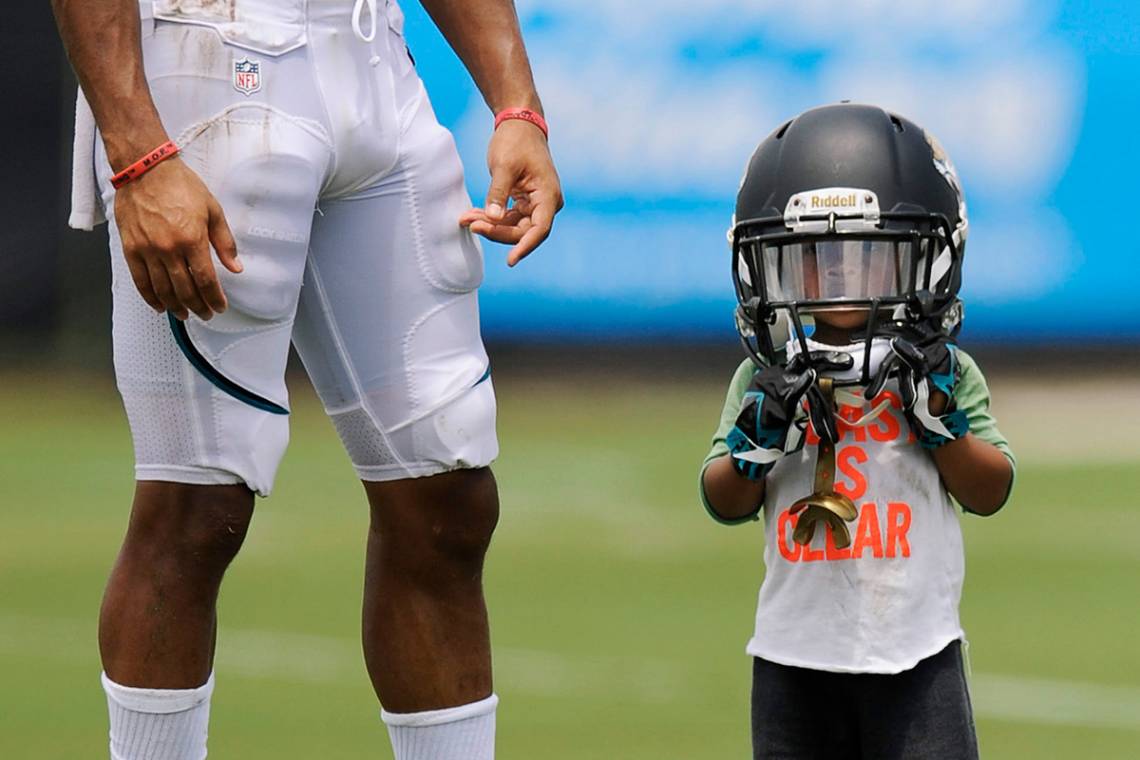
The Super Bowl is over, but there’s a need now to talk more about football, both as a beautiful game that is deeply ingrained in American culture and about the violence inherent in the sport that leaves lasting effects on the families of the people most involved in it.
A conference this weekend at Duke explores the game both as a cultural and as a health and policy issue. “Head Trauma in Football: Implications for Medicine, Law, and Policy” will involve Duke faculty and alumni as well as National Football League Hall of Famer Harry Carson and Duke economics professor Lori Leachman, author of the new book “The King of Halloween & Miss Firecracker Queen: A Daughter’s Tale of Family and Football.”
“We are pleased to be able to bring this program to Duke,” said Duke Law Professor Doriane Coleman, one of the conference organizers and a principal in the school’s Center for Sports Law & Policy.
“Football has undeniable cultural significance and is important to many American families and institutions, including our own,” Coleman said. “Because of this, it makes sense to go beyond the headlines about concussions and CTE to understand the state of the science of both, so that policymakers, players, and parents can make informed decisions about the game, its rules, and the individual decision to play. Duke has tremendous expertise in the relevant areas including in history, economics, neurology, biomedical engineering, bioethics, sports, law, and policy. The program puts this team together in best interdisciplinary tradition of the University.”
The conference starts with a showing Friday night of the film “Requiem for a Running Back,” a documentary film by Rebecca Carpenter who tells the story of her father, Lewis Carpenter, a running back for the Green Bay Packers during their championship years under Vince Lombardi. An autopsy revealed Carpenter suffered from head trauma, making him the 18th NFL player to be diagnosed with Chronic Traumatic Encephalopathy (CTE), a degenerative neurocognitive disorder that can cause episodes of rage, social withdrawal, and other unusual behaviors.
The story parallels Leachman’s own family, as told in her book. Her father, a noted football player and high school, college and National Football League coach, also died with CTE.
“Like the Carpenter Family, my father and my family love football,” Leachman said. “My father would not have chosen a different life, nor would Lew Carpenter, I suspect. But neither of them made an informed choice.
“’Requiem for a Running Back’ beautifully illuminates the consequences of that choice on a family. Now we know both the costs and benefits are greater. The film screening and program we are putting together at Duke is an effort to contribute to the information so that moving forward parents and players can make a choice in the context of fuller information.”
The free documentary will be shown at 6:30 p.m. Friday, Feb. 16 in the Nasher Museum of Art auditorium.
The conference continues at 1 p.m. Saturday at 3037 Law School with three panel discussions:
- “On the Role of Football in the Culture and the Culture of Football” with Duke professors Charles Clotfelter and Laurent DuBois, moderated by Doriane Coleman.
- “On the Science and Management of Head Trauma” with Duke brain injury experts Joel Morgenlander and Cameron “Dale” Bass, moderated by Paul Haagen.
- “Implications, for Medicine, Law and Policy” with Carson joining Duke professors Jason Luck, Philip Rosoff and Don Taylor and Duke Law alumnus James Gillenwater, co-founder of the US Rugby Players Association. Leachman and Duke Professor James Coleman will moderate.
The conference is sponsored by the Duke Law School Center for Sports Law & Policy and co-sponsored by the Trent Center for Bioethics, Humanities & History of Medicine in the Duke University & School of Medicine and the Duke Institute for Brain Sciences